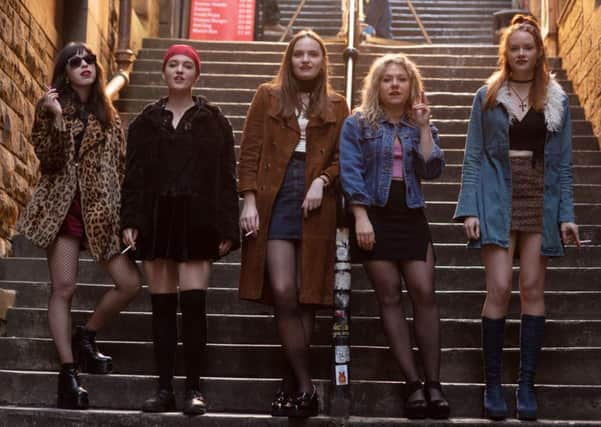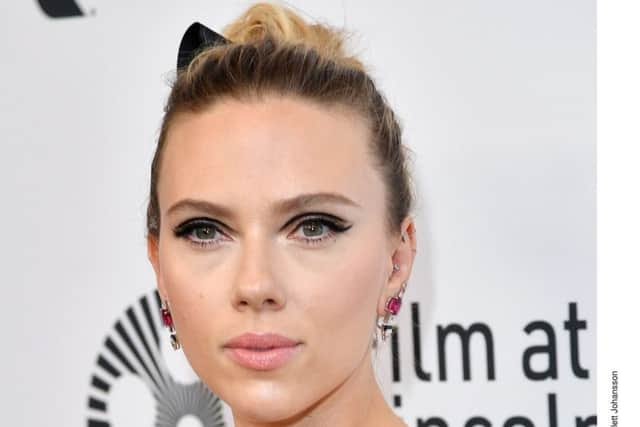Film reviews: BFI London Film Festival, various venues, London


BFI London Film Festival, various venues, London
It helps that Caton-Jones’s facility with young actors has resulted in a vibrant cast of newcomers in the lead roles. Collectively and individually, Marli Siu, Eve Austin, Tallulah Greive, Abigail Lawrie, Sally Messham and Rona Morison imbue their characters’ brazen behaviour with a matter-of-fact vitality and believability consistent with Warner’s prose-style. That’s important too because this is a much broader adaptation of his work than Lynne Ramsay’s artful adaptation of his debut novel, Morvern Callar. At times closer in tone to a raunchy teen comedy that’s had its edges blunted by over-familiarity, some of the comic set-pieces do fall a little flat, especially the girls’ various encounters with lecherous men. But there’s a poignancy and sweetness to the way the film never loses sight of the girls’ joie de vivre: they understand the limitations facing them, which only intensifies their noble quest to have a good time while they can.
Rian Johnson seemed intent on giving everyone a good time with his latest film, Knives Out (*****), a slyly subversive twist on old-school Agatha Christie-style whodunnits. As a super sleuth hired to investigate the death of a wealthy crime writer, Daniel Craig has a blast picking apart the various relationships within the Thrombey family, whose fortune is thrown into disarray when family patriarch Harlan (Christopher Plummer) is discovered with his throat slit. Set mostly within the Thrombey’s sprawling country mansion, the film plays around with the tropes of the genre while skilfully creating a riveting mystery of its own, one that functions in part as a sly, satirical take-down of Make America Great Again-style thinking.


Advertisement
Hide AdJojo Rabbit (***) was a little blunter about its satirical targets. Revolving around a 10-year-old German boy whose imaginary friend happens to be Hitler, Taika Waititi’s anti-hate comedy could have been a Springtime for Hitler-style misfire, but The Hunt for the Wilderpeople director’s ability to ridicule the Third Reich with a coming-of-age comedy mostly works by filtering its horrors through the prism of its pre-teen Hitler Youth protagonist (Roman Griffen Davies). Though destined to inspire hundreds of tiresome think-pieces, Waititi’s ability to use comedy to illuminate the false framework of such a hateful ideology is a valid one and the film manages to tread a fine line between hilarity and real pathos, the latter coming courtesy Scarlett Johansson’s compassionate turn as Jojo’s mother.
Johansson, pictured, popped up again as one of the co-leads of Noah Baumbach’s Marriage Story (****), a brutally honest, and sometimes brutally funny, portrait of a couple (played by Johansson and Adam Driver) negotiating the trauma of divorce. As egos and frayed nerves sabotage the couple’s idealistic attempts to separate with civility, the film is very good at giving both Johansson and Driver equal space to show how easily something that once seemed so great can sour so completely.
There was more familial discord in Rialto (****), the new film from Scottish director Peter Mackie Burns. A harrowing midlife crisis movie about a grieving family man (Tom Vaughan-Lawlor) who can’t stop himself from pulling the pin on his life, the film wasn’t an easy watch, but it’s exceptionally well directed by Mackie Burns, who elevates the stage-sourced material into an exacting piece of cinema that teases out some complex father-son themes via Vaughn-Lawlor’s palm-sweating performance in the lead and Tom Glynn-Carney’s delicate turn as the young rent boy with whom he becomes involved.
As an actor, Shia LeBeouff looked like he’d pulled the pin on his own career, but Honey Boy (***), his semi-autobiographical feature debut as a screenwriter, goes some way to explaining his tabloid-baiting behaviour. A rehab story in which an off-the-rails movie star (Lucas Hedges) recalls his youth as a child actor managed by an irresponsible father, the film – which is artfully directed by Alma Har’el – achieves an extra biographical frisson by casting LaBeouff as the father. Rehab stories are ten-a-penny, but this one distinguishes itself with insider details on the dark side of Hollywood.
ALISTAIR HARKNESS